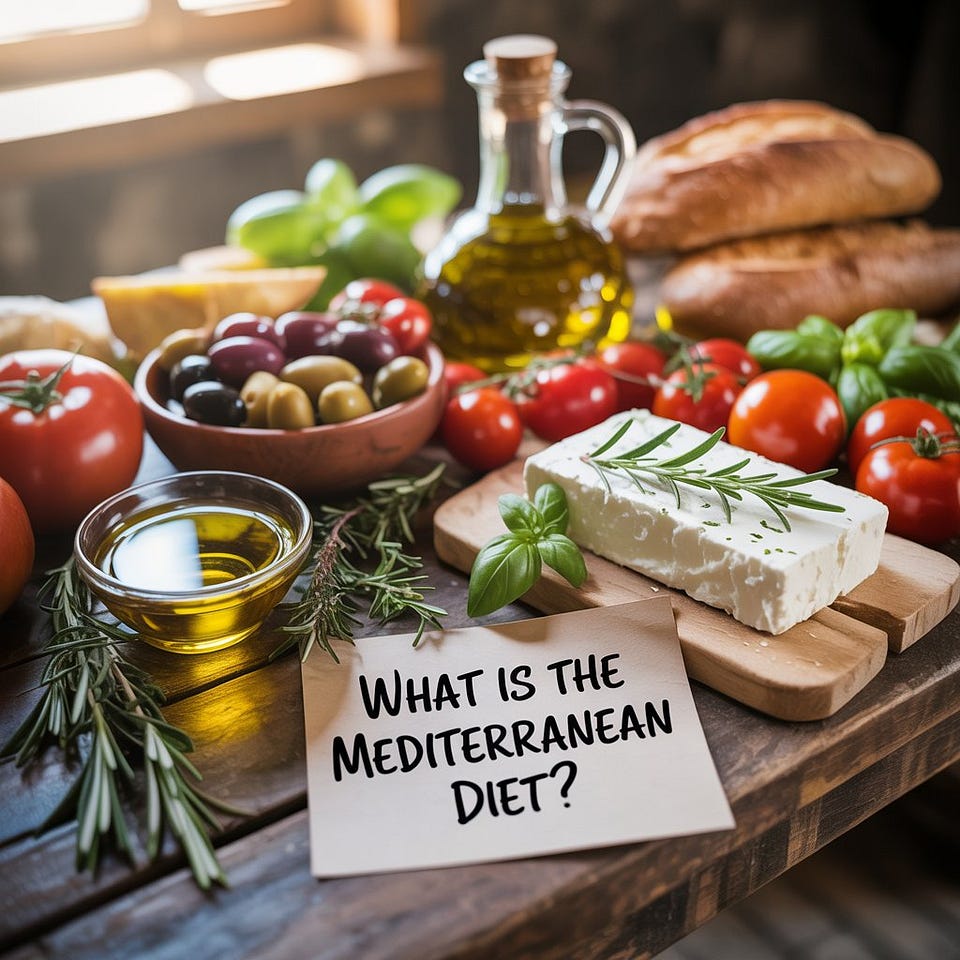What is the Mediterranean diet?

“The Mediterranean diet supports protection from conditions such as diabetes, memory decline, breast cancer, and heart attacks, and also plays an important role in weight loss and preserving mental health.”
When searching for diets, countless types appear — such as the ketogenic diet, Volumetrics, vegan diet, DASH diet, and intermittent fasting. Below is a brief overview of each.
Ketogenic Diet
This diet contains high fat and low carbohydrates — approximately 70 % fat, 25 % protein, and 5 % carbs. Foods include meat, ghee, oils (like olive oil), fatty fish, eggs, nuts, legumes, and vegetables. Processed foods, dairy, and bakery products are completely avoided.
Volumetrics Diet
Focuses on consuming nutrient-dense, low-calorie leafy vegetables and fruits to fill up on volume without excess calories.
Vegan Diet
Also called veganism, with variations like whole-food vegan, raw-food vegan, or junk-food vegan. It excludes all meat, eggs, and dairy, while relying on grains, vegetables, and fruits to sustain health.
DASH Diet
Stands for Dietary Approaches to Stop Hypertension. Designed for individuals with high blood pressure, this diet supports weight loss and healthy living. It’s based on 100 % grains, seafood, low-fat dairy, nuts, and seeds. It includes abundant magnesium, potassium, calcium, protein, and fiber, and limits sodium to just 3 g/day — about 20 % less than typical intake.
Intermittent Fasting
Involves a long fasting period between the last meal of one day and the first meal of the next — often 16 hours without eating, followed by an 8-hour eating window. Many other patterns are possible too.
Mediterranean Diet
This diet is becoming increasingly popular. Experts say it helps protect against diseases such as diabetes, impaired memory, breast cancer, and heart attacks, while also playing a major role in weight loss and mental health maintenance.
It is based on vegetables, fruits, dairy, whole grains, olive, canola, almond and other nut-based oils, and fish. A study published in the European Journal of Clinical Nutrition tracked the effects on blood pressure over 20 years and found long-term adherence to the Mediterranean diet results in 50–46 % lower risk of developing hypertension.
Following this diet also reduces the risk of cardiovascular diseases like heart attack and stroke, with up to a 33 % lower likelihood of death. It enhances cognitive performance and memory, reducing the probability of neurodegenerative diseases such as Alzheimer’s.
It also increases bone metabolism and strengthens bones. It decreases the risk of developing type 2 diabetes. A crucial component is olive oil — nutritionists suggest using approximately 1.5 ounces daily for cooking to accelerate weight and belly fat loss. One recent report states individuals who follow the Mediterranean diet consistently for at least 3 years tend to be mentally and brain-wise healthier and more energetic. Another study shows that heavy fish intake reduces depression risk; this effect is further enhanced when combined with oils from olive, canola, almond, and other nuts.
Comments
Post a Comment